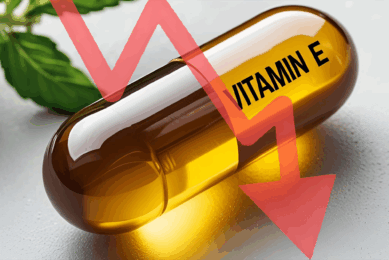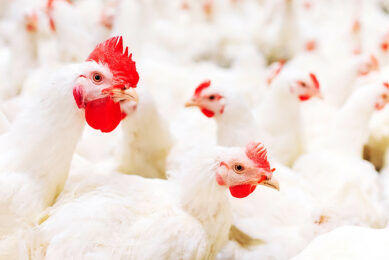Top 5 vitamins required in dog food

Most vitamins are found naturally in food, thus, the best source of vitamins for dogs is a well-balanced diet. However, insufficient amounts of vitamins cause deficiencies that result in serious health problems including lethargy, excessive thirst, excessive drooling, joint disease, and weight loss. In this article, the importance and level of vitamins in dog food will be discussed.
 B-complex vitamins
B-complex vitamins
B-complex vitamins are a group of water-soluble vitamins with unique benefits for dog health. B-complex vitamins are considered an important source of energy for dogs. Vitamin B1 or Thiamine improves and maintains brain, heart, and nerve function. Vitamin B2 or Riboflavin breaks down fats, proteins, and carbohydrates to produce energy. Furthermore, vitamin B2 is an important part of normal cell growth and function which helps proper digestion. Vitamin B5 or Pantothenic Acid keeps dog’s liver healthy and improves eyesight. Vitamin B6 or Pyridoxine helps produce haemoglobin, regulates blood glucose, improves eyesight, promotes brain health, and reduces arthritis symptoms. Vitamin B12 or Cobalamin is an essential vitamin that plays a role in nerve and blood cell growth and maintenance, burning fat and carbohydrates for energy, and cognitive functions such as perception, memory, and awareness. Since dogs are unable to create vitamin B12 on their own, it is essential to provide them with a healthy diet. Biotin or vitamin H is essential for shedding, healthy coats, and strong nails. Biotin heals dry, itchy skin and adds a healthy shine to hair that was previously dull. In addition, biotin regulates blood sugar levels and supports a healthy immune system.
 Vitamin C
Vitamin C
Vitamin C or Ascorbic Acid is a water-soluble essential vitamin that boosts immune support, develops, and repairs body tissue, and fortifies teeth, bones, and joints. In addition, vitamin C is critical for iron absorption. There are various forms of vitamin C found in supplements for dogs. The most common are mineral ascorbates or mineral salts of ascorbic acid including calcium ascorbate, sodium ascorbate, magnesium ascorbate, zinc ascorbate, molybdenum ascorbate chromium ascorbate, manganese ascorbate, and ester C calcium ascorbate.
 Vitamin E
Vitamin E
Vitamin E is a fat-soluble essential nutrient that is stored in the body’s fatty tissue and liver. Vitamin E supports immune function and the ability of the body to form red blood cells. Moreover, vitamin E is a major antioxidant that fights against free radicals and supports pet health. Symptoms of a vitamin E deficiency in dogs can include muscle weakness and reproductive failures in both males and females, and muscle weakness.
 Vitamin A
Vitamin A
Vitamin A is a fat-soluble vitamin that supports bone health, vision, the formation of organs and structures in growing animals, and the proper function of skin, coat, muscles, and nerves. In addition, vitamin A supports the immune system by making white blood cells which circulate in the body and scan for foreign invaders and cellular irregularities. Moreover, vitamin A is a powerful antioxidant that is found in the forms of carotenoids and retinoids. Carotenoids are provided in the pigment of yellow, orange, and/or red fruits and vegetables, and retinoids are present in animal meat, liver, and fish oil. As omnivores dogs can readily convert carotenoids into the usable form of vitamin A. Vitamin A deficiency in dogs impacts skin and coat and may result in night blindness, and muscle deterioration. In addition, vitamin A is important for pregnant females and puppies because growing puppies require it for growth, muscle, and neurological development.
 Vitamin D
Vitamin D
Vitamin D is a key nutritional element that dogs need to thrive. Vitamin D is commonly known as the “sunshine vitamin.” However, unlike humans, dogs are unable to synthesize vitamin D from sunlight exposure; therefore, dogs need to get all their vitamin D from their diet. Vitamin D is vital for the skeletal system because it regulates calcium and phosphorous deposits and absorption from the bones to develop and maintain healthy muscles, bones, and nerve function. In addition, vitamin D plays a role in absorbing calcium from food. Vitamin D deficiencies are rare in dogs and may be a result of eating a diet of unbalanced table food or raw food.











